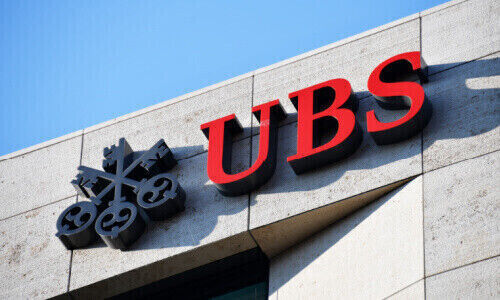Overall, Europe's ETFs saw net money flowing their way in March, but UBS and Credit Suisse were swimming against the current. Observers differ over the reasons.
UBS saw the largest net outflows from exchange-traded funds (ETFs) in Europe last month, possibly due to investor concerns over its government-forced takeover of Credit Suisse, according to a report in Thursday's edition of the «Financial Times» (behind paywall).
According to Morningstar data, European ETFs reeled in 13.1 billion euros ($14.2 billion) in March, of which iShares was the largest beneficiary with 7.7 billion.
UBS and Credit Suisse Outflows
In the case of UBS and Credit Suisse, a rising tide did not lift all boats, with UBS ETFs experiencing net outflows of two billion euros, followed by Credit Suisse with Europe's second-largest outflows of 179 million.
The most affected at UBS was its MSCI ACWI Socially Responsible ETF, where one billion euros flowed out. The MSCI Canada and MSCI Australia ETFs saw the third and eighth largest outflows, at 517 million euros and 347 million euros, respectively.
Changed Market Expectations
According to the «FT», investors are concerned about organizational uncertainty following the forced marriage with Credit Suisse. Employees could be poached by competitors, as mergers are always a disruptive element, they say.
Others argue the outflows could be the first sign that markets are changing their views on economic developments.
UBS Gains Ground
In March, asset allocation shifted toward bonds, driven by UBS' Global Wealth Management management, leading to a significant shift from equity funds into fixed-income investments.
The merger of the two major banks creates the fourth-largest ETF provider in Europe, just ahead of Vanguard, with combined assets of 87.4 billion euros and a market share of 6.4 percent as of the end of March, according to Morningstar data.
UBS thus becomes the third-largest asset manager in Europe and the second-largest provider of passive funds.


































